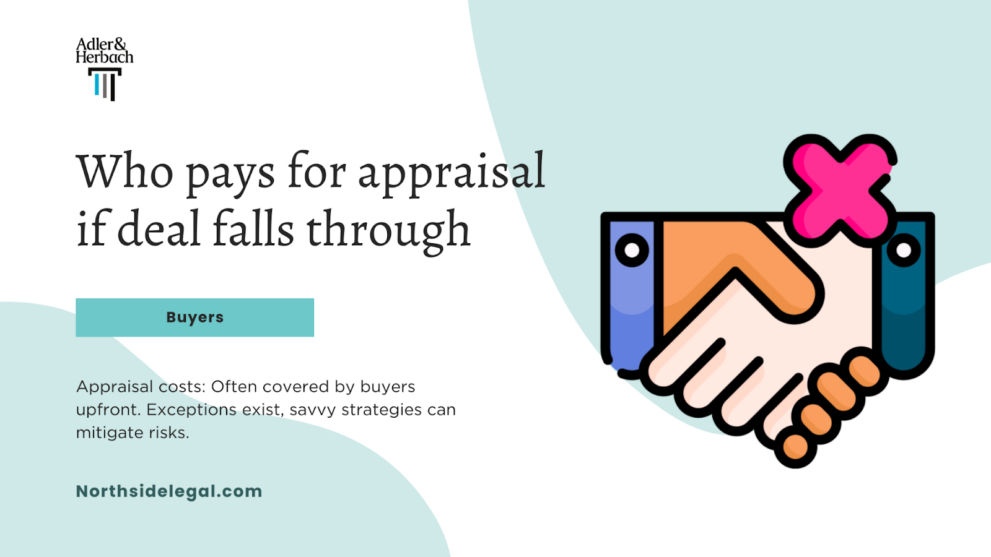After handing over hundreds of dollars for an appraisal early on when applying for their mortgage, many home buyers have a legitimate question – if this real estate deal ends up cancelling before closing, who’s going to be stuck footing the bill for that already completed, but now unnecessary, appraisal?
Who pays for appraisal if deal falls through?
When a home purchase falls through, unfortunately, buyers must cover the appraisal costs. Lenders order the appraisal and expect reimbursement from the buyer. However, some unique lender programs or pre-negotiations with sellers can sometimes save buyers this expense. Faulty appraisals might also be contested for fee return.

Here’s why this is usually the case:
- The lender is the entity that orders and pays for the appraisal on behalf of the borrower needing it for their loan underwriting. However, lenders require reimbursement.
- Appraisal fees are almost universally paid upfront by borrowers at the time of loan application, before the appraisal work is scheduled or completed.
- Appraisers provide and bill for services on each appraisal. There is no provision to account for cancelled transactions.
- Lenders take the position that third party appraisal services are the buyer’s expense and do not refund or offer recourse for canceled deals.
Exceptions where buyers don’t need to pay for appraisal
The main exceptions where buyers may not be responsible for a sunk appraisal cost include:
- Unique lender programs on some loans providing for possible reimbursement of third-party fees like appraisals if their financing falls through for unexpected reasons.
- Buyers successfully negotiating with sellers beforehand to cover all or part of the appraisal expense in case the deal falls through.
- Documented issues with the appraisal itself – major errors, negligence, etc. – that means the buyer received insufficient service for the fee paid.
How can buyers avoid transactions that are likely to fall through?
To avoid being stuck holding the bag on an appraisal for a failed home purchase, buyers can:
- Only make purchase offers you’re confident will make it to closing day without issues popping up.
- Ask for a contract clause making sale contingent on achieving full appraised value, not just what buyer is willing to pay. While not typical, a contract can include a clause requiring seller to cover the cost of appraisal if it comes up short.
- Negotiate holding off on appraisal until later in the process when the risk of collapse is lower. This has a downside, however, in that it can cause a delay in final loan approval.
Learn more about
- What does a home appraisal cost?
- What is my house worth?
- Paying for appraisal before loan approval
- Who pays for appraisal on FHA loan?
Knowing that appraisal expenses are rarely refundable, buyers should prepare for this possibility to limit financial surprises. Be sure to account for this in your home shopping budget.


